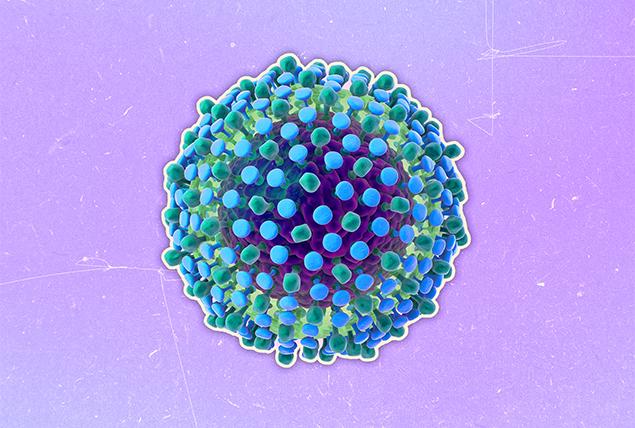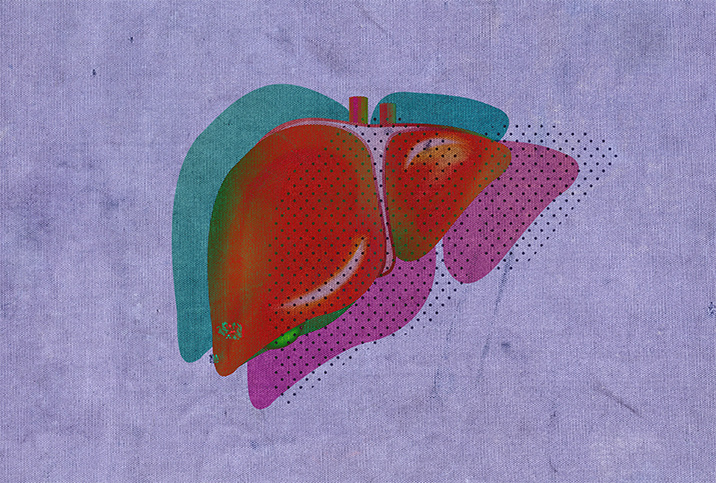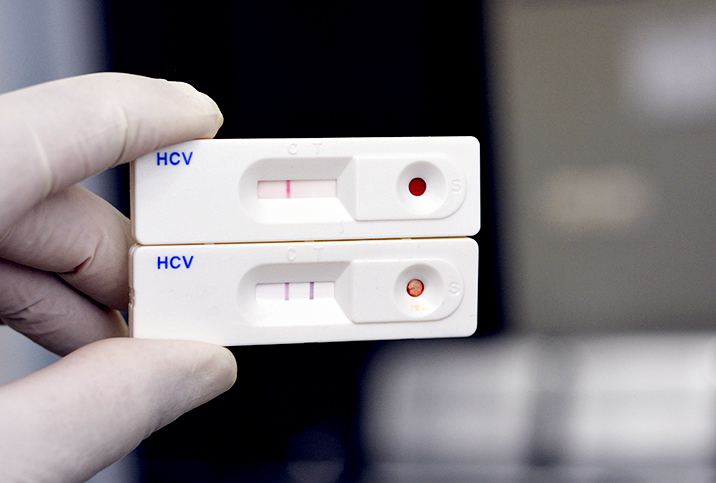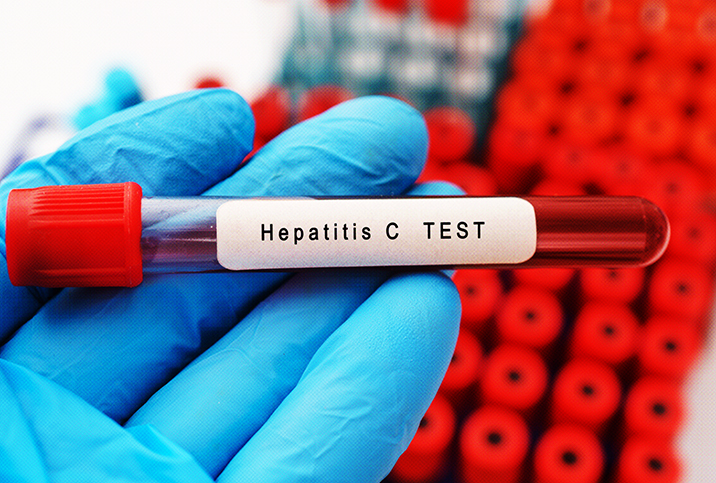Is Hepatitis an STD?

There are five different types of hepatitis viruses, designated by the letters A to E, as well as alcoholic and autoimmune hepatitis. However, only hepatitis B and C are sexually transmitted. The thing they have in common? They all affect the liver.
The Centers for Disease Control and Prevention (CDC) estimates that about 2.4 million people in the United States live with hepatitis C (HCV or hep C), though this figure could be much higher. For hepatitis B (HBV or hep B), the estimate is slightly lower. It is thought to affect between 880,000 and 1.89 million people.
"Hepatitis can be transmitted through oral and anal sex, as well as through penetrative vaginal sex," said Melanie Bone M.D., an OB-GYN in West Palm Beach, Florida, and a member of the medical board of Daye, a provider of healthcare products and services for women. "It's important to note that the term sexually transmitted infection (STI) is more inclusive and accurate than sexually transmitted disease (STD) because not all infections lead to diseases."
Hepatitis infections differ from common STIs or STDs, but can be classified as such even though sex isn't the primary way they spread.
Hep B and C are transmitted through other means, too, such as shared needles, infected blood transfusions or from mother to child during childbirth. As a result, hepatitis C is considered the most commonly reported bloodborne infection in the U.S.
There was a recent rise in hepatitis B and C infections, particularly for people in their 20s and 30s. The rate of reported new hepatitis C infections was four times higher in 2018 than in 2010.
In Kentucky, Tennessee, Virginia and West Virginia, acute hepatitis C infections jumped by 364 percent between 2006 and 2012. Between 2006 and 2013, hepatitis B infections increased by 114 percent in Kentucky, Tennessee and West Virginia. These increases are largely attributed to the opioid crisis and transmission due to injected drug use—not sexual activity.
What happens when you have hepatitis?
Bone said the symptoms of a chronic hepatitis infection include:
- Abdominal pain
- Dark urine
- Fatigue
- Fever
- Loss of appetite
- Nausea
- Vomiting
- Yellowing of the skin and eyes (aka jaundice)
"However, some people with hepatitis may not have any symptoms, so regular testing is important," Bone said.
The U.S. Department of Health and Human Services estimated that 67 percent of those infected with hepatitis B and 51 percent of those infected with hepatitis C don't know they have it.
Both can be diagnosed with a simple blood test, but many people might not think to seek testing without first experiencing symptoms. That's why it's important to be proactive with a testing schedule. Chronic hepatitis can be symptomless for years, all while your liver accumulates damage until you are diagnosed and begin treatment.
The hep B vaccine
A vaccine is available for hepatitis B and involves a schedule of up to three injections. It is seen as effective, with 9 in 10 vaccinated adults developing protection against the infection, according to the United Kingdom's National Health Service.
The American College of Obstetricians and Gynecologists (ACOG) recommends that all pregnant people be tested for both hepatitis B and C. If the mother is positive for hepatitis B, then the baby will receive an antibody injection followed by the vaccine within 12 hours after birth to prevent infection.
The consequences of chronic hepatitis
Some hepatitis B and C infections can go away on their own, according to Sophia Yen, M.D., M.P.H., the CEO and co-founder of Pandia Health, in Sunnyvale, California.
"You may have minimal symptoms that are easily ignored," Yen said. "However, if your body does not clear the infection, then you can have chronic infection for years without knowing it."
Both conditions can and should be managed as chronic infections.
"There are many antiviral medications in certain regimens that can be administered to someone who has hepatitis B or hepatitis C," said Laura Purdy, M.D., M.B.A., a board-certified family medicine physician in Nashville, Tennessee. "While hepatitis C does not have a vaccine against it, there are actually some curative treatments that, although they are very aggressive, can be given."
According to the CDC, 95 percent of hepatitis C cases are curable. Treatment takes from eight to 12 weeks.
Both infections can still have devastating effects.
"Long-term hepatitis B or C can result in liver failure, cirrhosis of the liver [scarring resulting in permanent damage] and death," Purdy said.
Both hepatitis B and C are leading causes of liver cancer in the U.S. According to a study published in June 2019 in the Journal of the American Medical Association (JAMA), a hepatitis B infection is associated with several other cancers, such as hepatocellular carcinoma, stomach cancer, colorectal cancer, oral cancer, pancreatic cancer and lymphoma.
According to the Hepatitis B Foundation, people with this chronic infection have a 25 percent to 40 percent lifetime risk of developing liver cancer. More than half of worldwide liver cancers are associated with hepatitis B infections and 20 percent of them are related to hepatitis C.
About 3,000 to 5,000 people in the U.S. die due to hepatitis B every year. In 2020, there were 3.45 deaths associated with hepatitis C for every 100,000 people in the U.S.
Protecting yourself from hepatitis
Yen shared these tips to avoid being infected by hepatitis B and C:
- Get vaccinated for hepatitis B if you are at risk.
- If you do use drugs, avoid sharing needles or other injection equipment.
- Practice safer sex by using vaginal (internal) or penile condoms.
- Use dental dams for oral sex.
- Regular testing will allow you to detect hepatitis early and commence treatment.
It is vital to disclose any necessary history of sexually transmitted infections and diseases with partners and to discuss any risks or considerations before engaging in sexual activity.
So, is hepatitis an STD?
Hepatitis infections differ from common STIs or STDs such as chlamydia, trichomoniasis, gonorrhea or syphilis—which are most commonly transmitted through sexual fluids—because HBV and HCV are both transmitted via blood.
However, similar to HIV, they could also be classified as STIs even though sex isn't the primary way they spread.
While hepatitis transmission is a consideration when engaging in sexual activity, protection against this infection is the same as any other STD or STI.
Get your hepatitis B vaccine if necessary, use barrier protection such as condoms, get tested, and stay fit and healthy. These are all vital tools you can use against sexually transmitted hepatitis.
If you have any concerns about your liver health, see your doctor to prevent complications.


















